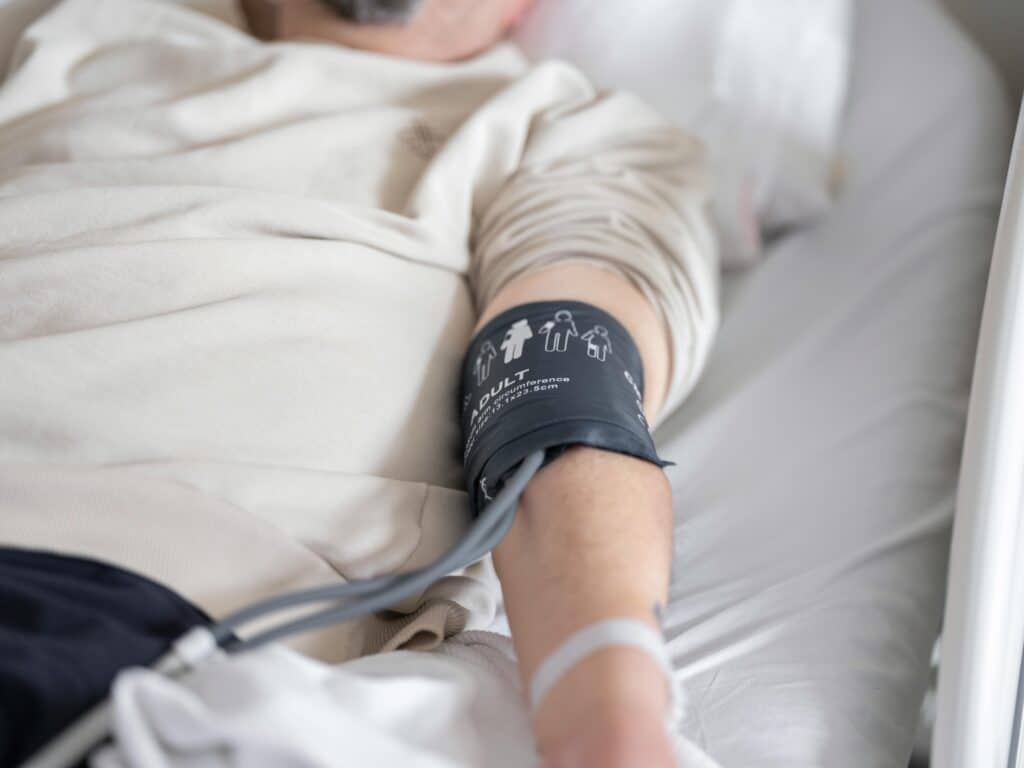AppriseMD recently argued that the presence of a rise in creatinine constituted hypertensive end-organ damage, which was the key factor for a Medicare Advantage denial being overturned.
CLINICAL SUMMARY:
An elderly patient with a history of hypertension and thyroid disease sought treatment in the emergency department after a fall. The patient suffered a closed head injury following a fall to the ground, causing the loss of about 250 cc of blood, but the patient did not lose consciousness. Doctors reported a large hematoma on the back of the head with a 4 cm by 4 cm stellate laceration. The patient’s heart rate remained normal and showed normal motor functions with normal speech and behavior. Upon arrival, the patient was hypertensive, with a blood pressure ranging from 200/73 to 153/78, and was also tachypneic (RR>20×1). Otherwise, vital signs were stable. Lab results were: WBC 10.1, Hgb 12.2, Platelets 222, Na 138, K 3.4, BUN 32, Cr 1.99 (BL unknown), Glu 211, Hgb A1C 6.5. INR 1.15. PT 14.6. APTT 27.6. The patient was on Plavix at the time of arrival. Doctors repaired the laceration and noted an associated acute kidney injury (AKI). The patient was admitted to inpatient level of care (LOC) for blood pressure control and intravenous fluids for AKI. The patient’s bleeding was controlled, and was stabilized during the hospital stay. The patient was then recommended for discharge to a skilled nursing facility.
 INPATIENT STAY DENIAL
INPATIENT STAY DENIAL
The patient’s Medicare Advantage (MA) plan denied the inpatient LOC for the hospital stay based on lack of medical necessity. The payer medical director reviewing the case determined that the inpatient admission was not reasonable and necessary based upon appropriate coverage under the patient’s plan.
 THE APPRISEMD PROCESS
THE APPRISEMD PROCESS
The AppriseMD team scheduled the peer-to-peer with the MA plan, and an AppriseMD expert physician advisor conducted the peer review with the payer’s medical director. The physicians discussed the patient’s medical records, and the AppriseMD physician advisor identified key aspects in the patient’s chart that supported medical necessity. This included that the patient was initially hypertensive with a reading of 200/73 and had an associated AKI that required treatment with IV fluids. The discussion zoned in on the patient’s creatinine levels during hospitalization and AppriseMD argued that even though the creatinine level was not greater than 2.5-3 X baseline levels, inpatient LOC was supported due to the presence of an AKI in the setting of significant hypertension. The patient received medical care beyond two midnights, meeting the two-midnight benchmark and inpatient LOC was ultimately approved without the need for intensive care for significant IV antihypertensive agents. In this case, the presence of a rise in creatinine constituted hypertensive end-organ damage, which is what AppriseMD argued, resulting in the denial being overturned and inpatient LOC approved.


 INPATIENT STAY DENIAL
INPATIENT STAY DENIAL THE APPRISEMD PROCESS
THE APPRISEMD PROCESS